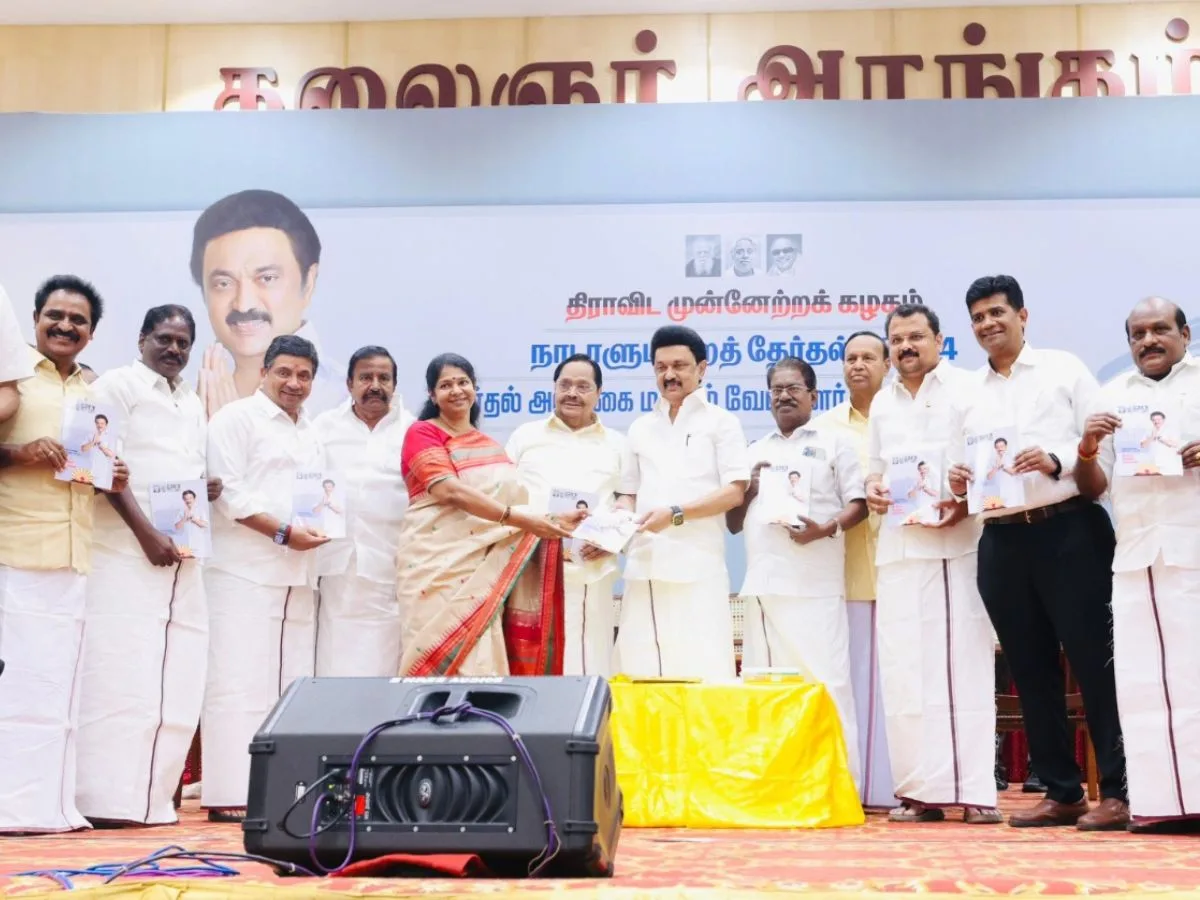The DMK manifesto for the 2024 Lok Sabha elections is typical in the sense that it promises loads of freebies even while fleshing out some worthwhile points regarding the long-term needs of the people.
Today, the discourse on freebies has evolved to judging freebie promises on two counts: rational and irrational. While this, in and of itself, is highly debatable and whether any freebie is rational at all, it still marks an evolution in political discourse.
Meanwhile, the Supreme Court has assured that it will take up a Public Interest Litigation on freebie promises by political parties ahead of the 2024 general elections. This has put the onus on political parties. They need to explain how the government can mobilize the finances needed to pay for the freebies.
The DMK’s manifesto has given importance to youth, women, farmers, and somewhat aged people. Alas, it has not given due importance to the issues of urban growth centres which are the carriers of economic growth and job creation. Reforms of key state PSUs are ignored.
Most parties go silent on what rationality or evidence supports their policy proposals in manifestos. If that’s the case with policies, we can only imagine the case with freebies. By and large, actual implementation of schemes and programmes have fallen far short of tall poll eve promises, in any case.
The DMK’s manifesto has given importance to youth, women, farmers, and somewhat aged people. Alas, it has not given due importance to the issues of urban growth centres which are the carriers of economic growth and job creation. Reforms of key state PSUs are ignored.
Also Read: When is a freebie welfare expenditure?
Reckless freebies are unwarranted, given the overall economic performance and historical decline in poverty levels. Targeted assistance to specific demographic groups using technological tools to reduce leakages are the need of the hour.
Below are the DMK manifesto’s freebie promises.
- Waiving off loans and interests for farmers in nationalised and scheduled banks.
- Waiver of educational loans for students.
- A monthly entitlement of Rs. 1000 for all women in every state.
- College students will receive a free SIM card with One GB data per month.
- Free Wi-Fi services will be provided in all important locations state-wide.
- Interest-free loans up to Rs. 10 lakhs will be provided to women’s self-help groups.
- Funding for homes built under the PMAY housing scheme will be doubled.
- Interest-free educational loans up to 4 lakhs will be offered to students.
- The Naan Mudhalvan and Pudhumai Penn schemes will be expanded to benefit students nationwide.
- Petrol, diesel, and LPG cylinder prices will be set at Rs. 75, Rs. 65, and Rs. 500, respectively.
- Women in self-help groups across India will be provided with interest-free vehicle loans up to ₹1 lakh.
- Through the Employees’ Provident Fund (EPF), the Union government will ensure a minimum pension of Rs. 5000/- per month.
- The number of working days under the Mahatma Gandhi National Rural Employment Guarantee Act will be increased from 100 to 150 days. A wage of Rs. 400 will be provided across states/union territories nationwide.
- Solar Panels will be provided with 80% government subsidy and 20% beneficiary contribution to all houses.
- The new Union government will attempt to increase the funding allocation for the MGNREGA social security scheme to at least 1,50,000 crores per year.
- The medical insurance amount for families below the poverty line will be increased to Rs. 10 lakhs.
- Financial assistance under the PM-KISAN scheme will be increased to Rs. 12,000.
These freebies will erode the already stressed financial health of the states as well as the centre. Several lakhs of crores would be needed for nationwide implementation. In a mature democratic system of governance, such promises should be supported by specific proposals on how these schemes will be funded, in the interest of accountability.
Most parties go silent on what rationality or evidence supports their policy proposals in manifestos. If that’s the case with policies, we can only imagine the case with freebies. By and large, actual implementation of schemes and programmes have fallen far short of tall poll eve promises, in any case.
The DMK government’s pilot urban employment scheme in cities like Coimbatore has been a disaster. There’s a labour shortage in several sectors and there are few takers for this scheme. Yes, the DMK has gone ahead and promised a MGNREGA-like scheme for urban areas, guaranteeing 100 days of employment in urban areas.
Also Read: TN needs road map for senior citizens’ welfare
The following promises are, however, positive and could contribute to the growth of state economies and the center’s.
- Like the Planning Commission, a permanent Finance Commission will be established.
- The Smart City project will be extended to more second and third-tier cities in India.
- Tourist facilities will be enhanced in towns near major pilgrimage sites to attract more visitors.
- Urban development including all facilities will be undertaken in towns near places of worship like Madurai, Thiruvarur, Thanjavur, Chidambaram, Nagore, and Velankanni, to attract more tourists.
- Tamil departments will be established in all universities across India.
- By 2030, all major Union and state government offices in Tamil Nadu will be converted to operate entirely on solar power.
Perhaps, the Supreme Court can direct the Election Commission to appoint an inclusive expert committee that would diligently monitor or evaluate the financial implications of promises in poll manifestos. This would help voters make informed choices.
(The author is an economist and public policy expert)
